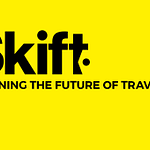Hi,
Welcome to Remotely Inclined, a newsletter about running a business remotely. If you’d like to sign up, you can do so here. Want to share your feedback? Respond to this email (or send me one). Or just read on…
Today: I’m responding to two viral articles about remote work on today’s podcast. The long and short of it? I’m skeptical.
Ok, so two articles went mega-viral this week in the remote work blogosphere:
From a media perspective, I have to hand it to them. Salacious headlines. Very “anti.” It’s got punch, facts, scary futures… it’s a delight. A great story. Which is exactly why I eye-rolled at the titles. However, I was also intrigued and curious. So I read both articles - here are my thoughts.

Are we in for a crash - or a call to creativity?
The article on how a trillion-dollar economy is dying because it was very tied to the office ecosystem is real, and it’s scary. White collar workers and business travellers are the dominant spending category for a huge swath of the economy:
Hotels.
Airlines / air travel.
Food delivery.
Restaurants and cafes.
Office-adjacent businesses like dry cleaners, shoe shiners, and suit stores.
Office furniture, technology, and supply stores.
But, as author Steve LeVine suggests, the bigger fear is not necessarily the primary loss (even though that alone is tens of thousands of jobs), it’s the next-step loss caused by city dwellers fleeing the city. If too many people leave the city, even further carnage could result in terms of commercial downtowns falling apart, losing jobs, and more.
The logic is all there. And we’ve already seen a huge loss due to COVID, but I worry that the fears might be overstated.


Here’s what I see instead: a call to creativity.
Rents falling in major cities could result in a huge spike in small-time entrepreneurship: the cute cafes, shops, and restaurants that could never afford city rents. Further, people leaving could ultimately be nothing. What’s 50,000 people leaving in a city of millions? A painful blip, but little else. There’s real potential damage from the idea that more people might choose not to move to cities from small towns, and that could cause some city damage. However, doesn’t it kind of suck that our current model of city living is “it sucks, but you have to”? We can do better.

Who isn’t able to afford the city right now that could soon? Photo via Unsplash.
Remote work is giving people the opportunity to live where they want - and it might even make cities more affordable. Just as thousands of people are taking their remote jobs and buying old houses, there are people who have always dreamed of living in the city (or just love cities) and now it’s affordable for them. I think the only people that will truly fail in this shift are the ones that built on the idea of guaranteed demand. If anything, we might see new developments building actual homes in cities (or “home in the sky” condos) at affordable rates, instead of shoeboxes we cram into because the only good jobs are here.
Innovation has a remote work problem
In the article that remote work isn’t sustainable, Professor Hyejin Youn’s main point is that remote work cannot produce the same levels of innovation that central HQs in large cities can.
So, right off the bat: this article is not about remote work, it’s about innovation and what kinds of environments foster it. The remote work connection is interesting and topical, but this article is not analyzing what remote work is or can do. Simply suggesting that remote work and innovation are not compatible.
From there, the Professor Youn - a professor at the Kellogg School of Management at Northwestern University, walks through his primary arguments:
Big cities are hubs of innovation because of their diversity.
Remote work is great for productivity, but not innovation.
Ultimately, he drew the conclusion that if a company wants to be innovative, it needs to have an HQ in an innovation-breeding city, which he says starts around one million people. There’s a grave message to “think twice” before going to cities under one million, and suggests that municipal leaders need to create policies and infrastructure to attract “cognitive labor” (aka knowledge workers) - something we completely agree on.
Where I disagree with Professor Youn is the implication that you can only get diversity from large cities. Sure, cities might bring the diversity to you, but distributed and remote teams are possibly the best cross-section of global diversity available to the working world… if you build it that way. Yes, you can work remotely with all your bros from college, but you can also work remotely with brilliant minds living in different cities, countries, and circumstances. That’s a heck of a lot of diversity.

We need to build innovation systems for remote work. Image via Unsplash.
The concept of remote being great for productivity but not innovation is one I have a hard time disagreeing with. However, what I’ve seen and learned from my interviews with remote entrepreneurs is that the new crop of innovators is not trying to take office-innovation virtual, they are looking at the strengths of remote work and building new models of innovation. For example, Shelly Spiegel focuses heavily on her remote culture. Melissa Kargiannakis leans into short meetings with ample additional communication opportunities. Floyd Marinescu focuses on reducing cognitive load to make innovation easier. This isn’t to say it’s a silver bullet - just that innovation is not a one-legged beast.
PS - liking these articles? Share them with a friend!














Share this post